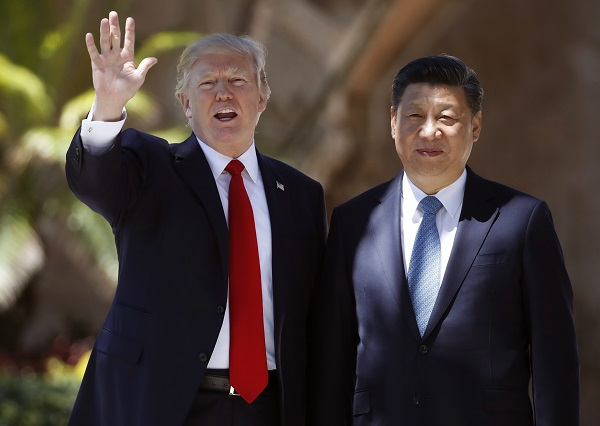US experts call for 'secondary sanctions' on China to get Beijing to exercise real pressure on NK
By a2016032Published : April 26, 2017 - 09:22
China is unlikely to exercise enough pressure on North Korea to make it rethink its weapons programs, and the US should aggressively pursue "secondary sanctions" on Chinese firms doing business with the North in order to get Beijing moving, US experts said Tuesday.
"I think there are going to be limits to what they're going to be willing to do. Their biggest fear, of course, is destabilizing the peninsula. Now is the time to try to make China understand that the status quo is worse for them than all other scenarios," Kelly Magsamen, a former senior Pentagon official, said during a Senate Armed Services Committee hearing.
"I think we need to hold their interests at risk," she said. "We need (to) think hard about secondary sanctions on Chinese banks. I actually think we should go out and -- and do it now. I don't think we should actually wait. I don't think that holding it in advance is actually going to induce Chinese cooperation. So now is the time to demonstrate to China that we're serious in that regard."

Since his first summit talks with Chinese President Xi Jinping, President Donald Trump has kept encouraging China to increase pressure on the North, repeatedly praising Xi for trying to do so, including returning coal shipments from North Korea.
But analysts say China is unlikely to go as far as to cause real pain to Pyongyang.
Aaron Friedberg, a Princeton University professor, said that China has been "playing a game" with the US for at least 15 years on the issue.
"When we get especially concerned about what the North Koreans are doing and we go to the Chinese and ask them for their help, what they've done in the past is to apply limited increments of pressure. They did in 2003 to get the North Koreans to agree to sit down, what became six party talks," he said.
But at the same time, China is enabling the North Korean regime to continue by allowing trade, he said.
"I'm not at all optimistic that the Chinese are going to play a different game with us now than they did in the past," Friedberg said.
The US could increase economic pressure on the North, particularly by imposing further economic sanctions and especially financial sanctions, including those based in China, something previous administrations have been reluctant to do over concern about upsetting relations with China, the professor said.
The best the US can hope for is for China to pressure the North to slow down its weapons programs, he said.
"The ultimate solution to this problem is regime change," Friedberg said. "Unless and until there's a change in the character of the North Korean regime and certainly the identity of the current leadership, there's absolutely no prospect that I can see that this problem will get better."
Ashley Tellis, a senior fellow at the Carnegie Endowment For International Peace, also expressed skepticism.
"I believe the North Korean regime will continue to persist with its nuclear program because it sees that is indispensable to its own survival. And I also do not believe that China will exert the kind of pressure required to force the North Korean regime to make those fundamental changes," she said.
Victor Cha, Korea chairman at the Center for Strategic and International Studies, said that Chinese pressure is unlikely to stop the North's nuclear program, even though it can force Pyongyang back to the negotiating table.
Cha also said Beijing could be "more receptive" to US demands for pressure on the North than before.
"This situation is a little bit different now because the Chinese are desperate for some sort of diplomacy to take place.
They really don't understand what President Trump might do, and they feel they have no control over North Korea. So they may be more receptive than they were in the past," he said. (Yonhap)



![[Exclusive] Korean military set to ban iPhones over 'security' concerns](http://res.heraldm.com/phpwas/restmb_idxmake.php?idx=644&simg=/content/image/2024/04/23/20240423050599_0.jpg&u=20240423183955)

![[Graphic News] 77% of young Koreans still financially dependent](http://res.heraldm.com/phpwas/restmb_idxmake.php?idx=644&simg=/content/image/2024/04/22/20240422050762_0.gif&u=)



![[Pressure points] Leggings in public: Fashion statement or social faux pas?](http://res.heraldm.com/phpwas/restmb_idxmake.php?idx=644&simg=/content/image/2024/04/23/20240423050669_0.jpg&u=)









